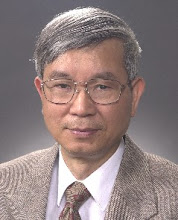SCRUTINY: Three Court of Appeals judges on Thursday considered a suit to determine whether Taiwanese qualify for US passports based on the San Francisco Peace Treaty
By Nadia Tsao
STAFF REPORTER , WITH STAFF WRITER, WASHINGTON
Saturday, Feb 07, 2009, Page 3
(Taipei Times)
Almost 100 Taiwanese residing in the US gathered at the Court of Appeals in Washington on Thursday to listen in on the latest proceedings of a lawsuit brought by Roger Lin (林志昇) that is aimed at ascertaining whether the US is still Taiwan’s principal occupying power and whether Taiwanese can demand US passports from the US government based on this.
In December 2006, Lin hired Charles Camp to represent this case in the US legal system. Lin cited the fact that Japan merely gave up its power over Taiwan and the Pescadores after surrendering in World War II and that it did not return Taiwan’s sovereignty rights to China. He also said that the San Francisco Peace Treaty did not deal with the sovereignty issues of Taiwan and the Pescadores, adding that the US was still Taiwan’s principal occupying power.
As a result, Lin and other Taiwanese residing in the US have requested that the US legal system look into what rights Taiwanese have, including whether they should be issued US passports based on the San Francisco Peace Treaty and the US Constitution.
When this lawsuit was first assessed in Washington’s district court, Judge Rosemary Collyer ruled in favor of the US government. In the court’s judgment, Collyer said that courts do not deal with political matters, adding that the way the US’ administrative departments have purposely and carefully avoided making comments about Taiwan’s status for years makes it impossible for the courts to decide on the rights of those appealing this case as this would be disrespectful to other administrative departments.
In Thursday’s hearing, former Judicial Yuan vice president Cheng Chung-mo (城仲模), representing the plaintiffs, and an assistant representing US Secretary of State Hillary Clinton appeared before the court.
Two hundred people attended the hearing, filling all 85 seats in the court, with others crowded outside the courtroom.
The plaintiffs were represented by two lawyers and the defendant by one. The hearing began with the three judges asking questions that were answered by the three lawyers. Most questions concerned sovereignty and political issues.
A dozen journalists from various countries also attended the hearing.
After the oral arguments in the case were finished, many Taiwanese who sat in on the proceedings surrounded Camp to discuss with him how Taiwan’s international status has yet to be defined. They also gave him the book Formosa Betrayed by former US diplomat George Kerr so that he could gain a deeper understanding of Taiwan’s history.
Apart from reiterating that this case was political in nature, Melissa Patterson, who represented the US government, said legal documents such as the Sino-American Mutual Defense Treaty, the Joint Communique on the Establishment of Diplomatic Relations between the US and China and the Taiwan Relations Act overthrew the ruling on Taiwan’s sovereignty as outlined in the San Francisco Peace Treaty.
However, the judge expressed doubt as to whether the US actually did have legal rights to the sovereignty of Taiwan when it signed the San Francisco Peace Treaty.
A verdict is expected to be announced within the legally specified time of one to seven days.
Cheng said during a press conference held afterward by the National Press Club that according to international legal procedure, the US must play an integral part in solving Taiwan’s issues.
Cheng, who has actively been behind this lawsuit, said he would take the case to the US Supreme Court if he fails to win the current lawsuit.
The lawsuit has however also caused an uproar among some overseas Taiwanese groups who feel it conflicts with Taiwan’s self-determination and independence.
Subscribe to:
Post Comments (Atom)

No comments:
Post a Comment